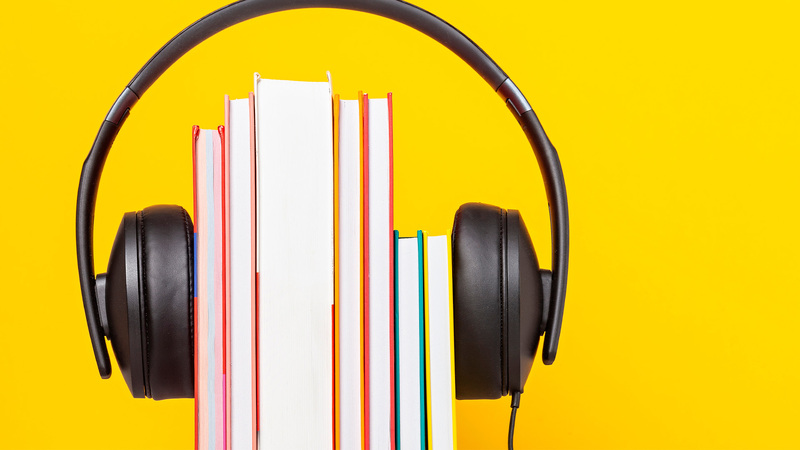You are viewing your 1 free article this month. Login to read more articles.
Industry needs 'educating' on audio rights says Kobo chief
Kobo’s chief executive Michael Tamblyn has said that an “education needs to happen” in audio rights for publishers and agents to prevent one player dominating the market.
Tamblyn, president and c.e.o of Rakuten Kobo, told delegates at The Bookseller’s Futurebook Conference in London on Friday (1st December) that content catalogues needed to be opened up to prevent a "mono-culture" from prevailing in audiobook retail. The Canada-based e-book company has recently launched an audiobook subscription service, but Amazon's Audible has a large share of the market and exclusive rights to publish many audiobooks.
Tamblyn called for an “education” to happen around audio rights so that authors do not end up “living in a one-company town”. He said: “I think the most important thing for that to take place is keeping content catalogues open. Driving the real anti-competitive forces is rights getting bought up, rights being held exclusively, rights being held by the same players. As soon as you do that you create the conditions for a mono-culture."
He added: “From a retail perspective it isn’t great, from a publisher perspective in the end it isn’t great. There’s an education that needs to happen on the publisher side, there’s an education that needs to happen on the agent side to say [to authors] ‘Yeah there’s a cheque in front of you right now but it does mean you’ll be living in a one-company town’."
Kurt Thielen, founder and m.d. of German-based Zebralution, a digital distributor, agreed with Tamblyn in the panel session titled ‘How can the new audiobook retailers grow in the UK market’. He said: “It’s really important to have more than one player… it’s crucial for the UK market.”
However, the panel also heard that the growth of audio consumption and its expansion across unchartered demographics were reasons to celebrate. Rebecca Herrmann, founder and co-c.e.o. of library audiobook provider Bolinda Audio said in her keynote speech that audio “will continue to grow at an unprecedented rate across the planet because we’ve all grown up listening and it’s really something that we love to do.”
Niclas Sandin, c.e.o. of BookBeat, Bonnier's e-book and audiobook subscription service in Sweden, said he predicted growth would be in double digits for at least the next decade. He said: “(In) Sweden... we thought the market was pretty mature a couple of years ago when we saw growth of 30% or 40%, but that growth has just increased. It is (driven by) more and more digital people coming in from reading e-books… There is a bright future for the audiobook market.”
Tamblyn agreed with Sandin and said: “I think the 10-year [growth] is achievable… the market itself is a fraction of what it can be when you think of how versatile it is and all the uses for it.”
He added there was "lots of room to grow” with podcasts acting as a “gateway” to move people into audiobooks. However, Tamblyn said publishers also needed to look at how to move the “entertainment time” from TV streaming to audiobooks.
Self-confessed “audiobook perennial” Herrmann said Bolinda was starting to “catapult in a way I never expected”. She explained how her life as an international model, her family of booksellers and her father’s library supply business all inspired her to create her company. She said: “I was an international model at the time and it occurred to me that the same system of booking models could be applied to booking actors to narrate books in a studio.”
Subscription versus ‘all-you-can-eat’ pricing models were also discussed. Tamblyn said that companies needed to consider which pricing model they used for audiobooks and that the interaction with the library market provided a useful “tension” for publishers. He said: “There is a lot of interaction in the consumption of the library market side which is bringing people into it… and then an interesting and healthy tension of token-based models on one side and all-you-can-have subscription on the other and publishers working out which model they want to support more or less - which helps to either gate or accelerate that growth. So it’s going to be really interesting to see how publishers want to manifest their growth, how they want that to happen.”
Ian Small, general manager of AudioBooks.com, said: “Consumer demand will drive what the future holds. The fact that music and TV are being subscribed through a [all-you-can-have model] is telling.”
The Bookseller’s charts editor, Kiera O’Brien, spoke of the "black hole" which exists around data on the audiobook market, partly because Audible does not disclose its download numbers, the fact that libraries take a significant chunk of the market, as well as the fragmentation of rights – some publishers sell their retail and library rights on to audio publishers while others only sell their library rights and others keep them in-house. She estimated the total figure for the audio market this year so far as £90m but suggested it could rise to £101m by the end of the year.
The youthful demographic of audiobook listeners was also emphasised by panelists with Tamblyn describing Kobo’s typical audio consumer as aged between 25 and 34, as opposed to their e-book readers who are aged from 45 to 55 on average.
Thielen explained how a lot of young people are migrating from listening to music to audiobook while Sandin said he was “amazed” by all the male audiobook listeners in the UK because in Sweden “75% audiobook listeners were women, just under 40, listening to fiction”.



















